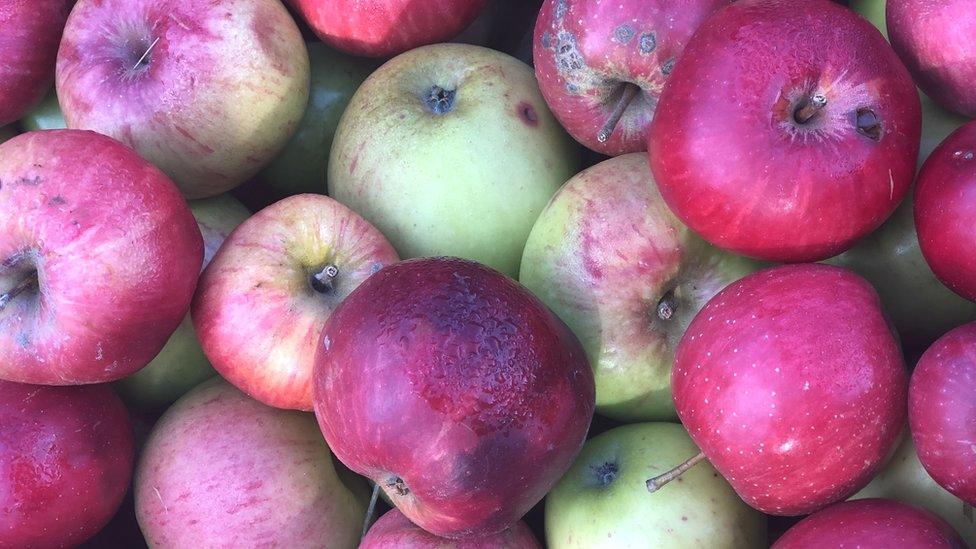'Apple nerds' wanted to find Luton's lost orchards
- Published
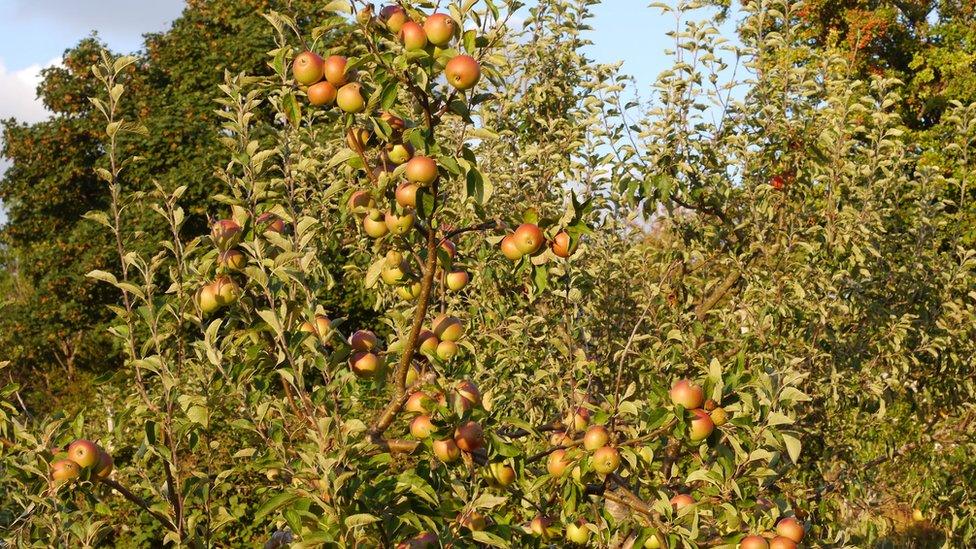
Luton Orchards aims to get more people involved in caring for urban fruit trees
A new project is hoping to "help people fall back in love with orchards" in their town.
Luton Orchards, external is asking residents to uncover the town's fruit-growing history and map out where trees remain.
Project founder and coordinator Konni Deppe believes the number of orchards in Luton has fallen by 90% over the past century.
She hopes by joining her "citizen science" scheme, people will take a fresh interest in urban fruit-growing.
"Orchards are good on so many levels - they are wildlife habitats, but also work for people, providing food, nature and mental wellbeing," she said.
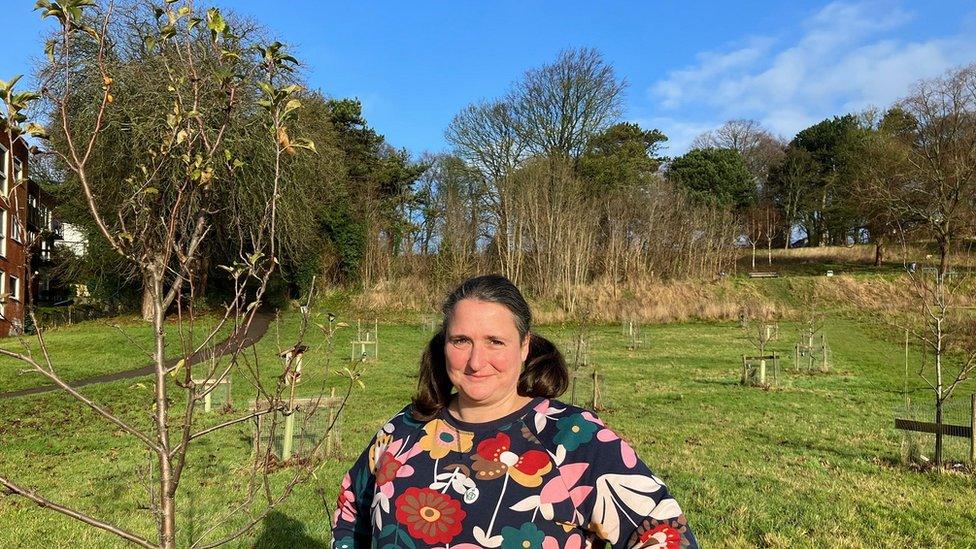
Konni Deppe helped to plant People's Park orchard in High Town
Ms Deppe "caught the apple bug" after helping to plant People's Park orchard in 2019, which includes plums, pears, apples and gages.
She points out one tree which is a Luton variety - Pam's Delight, external. It was first grown in 1958 by Alfred Hull and named after his daughter Pam.
"I kick-started the project to understand what we've had in the past, what we've lost - and also to look at the orchards we have now, to see how we can care for them.
"I want to know, how can we make orchards part of our local traditions?"
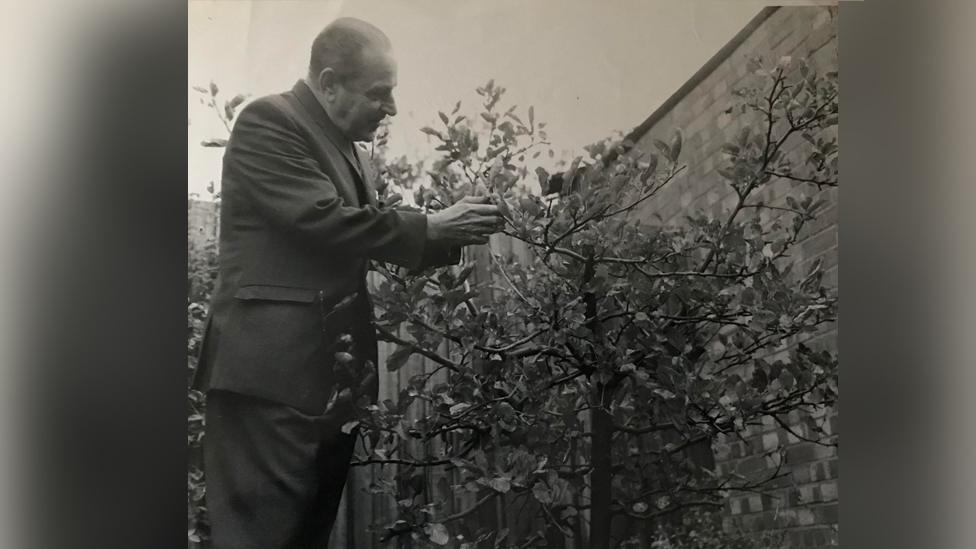
Alfred Hull developed apple variety Pam's Delight in Luton in 1958
Funded by Heritage Lottery money and armed with old Ordnance Survey maps, Ms Deppe has located 150 historic orchards in Luton - compared to the 15 sites that exist now.
"There were three kinds - orchards on farms, commercial plantations and fruit trees attached to pubs.
"I am really hoping there's still the odd tree in someone's pub garden."
She is appealing to "fruit tree fans" for help, whether that is desk research, sharing memories or learning pruning skills.
"The first step is to have a look at the old locations to see if there is anything left," she said.
"And we want to hear from anyone with memories of orchards, of going scrumping, of fruit farming in the area."
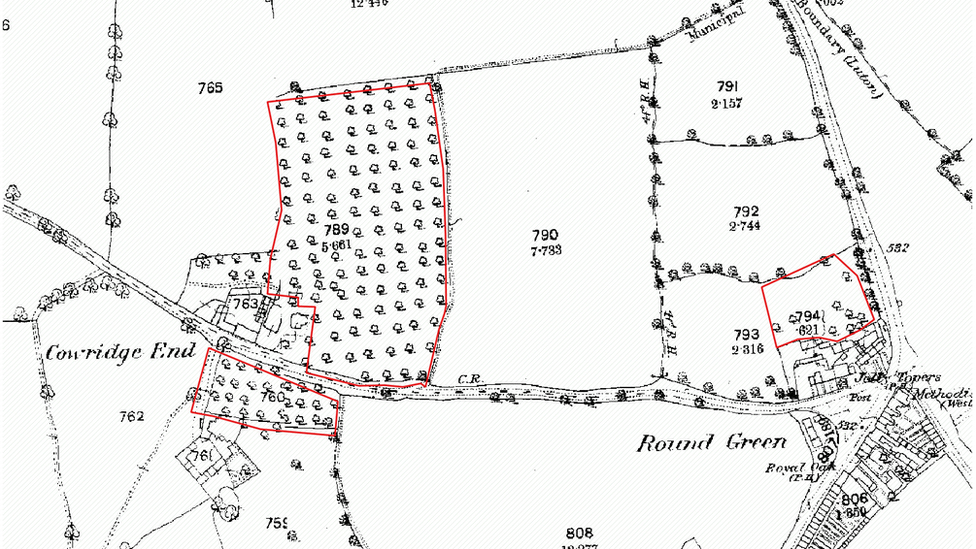
Lost orchards, like this one in Round Green, are being marked on special maps
Making sure Luton's fruit trees do not go to waste is another aspect of the project.
Ms Deppe and her friends organised an "apple amnesty" with Penrose Roots, external, collecting 250kg (550lb) of surplus apples from people's gardens and community orchards.
The apples were turned into juice at Apple Cottage press in Radwell, near Baldock, and sold at Christmas markets.
"The juice flew off the shelves. People are really surprised - and pleased - to buy Luton apple juice," she said.
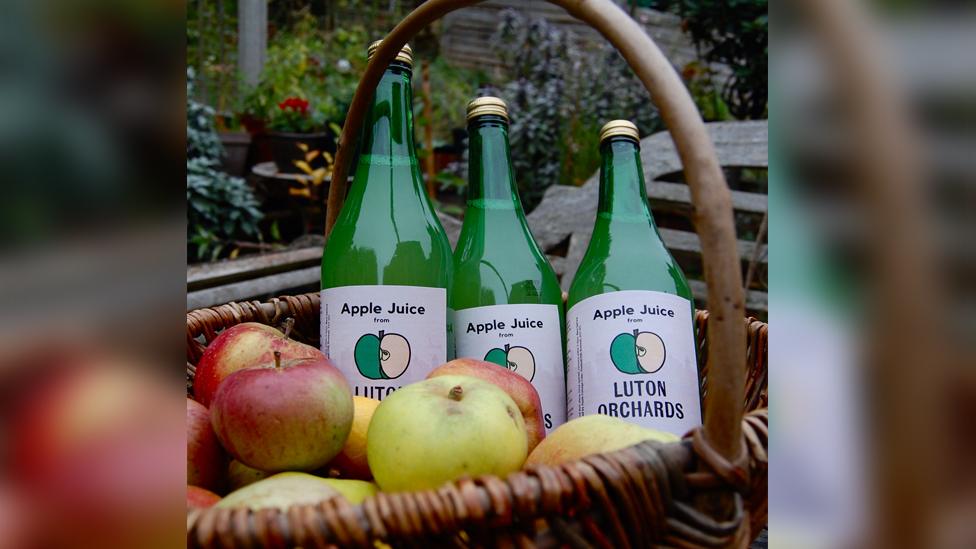
Luton apple juice was made using surplus crops from across the town
Ms Deppe hopes in future they will be able to press enough apples to provide juice for half of the town, but she said more hands on deck were needed.
"We've reached peak community orchard, we need more people to help care for fruit trees," she said.
"People and fruit trees are tightly connected. It's not something you plant and then forget about.
"If we can find the 'apple nerds' of Luton, that would be amazing."

Follow East of England news on Facebook, external, Instagram, external and X, external. Got a story? Email eastofenglandnews@bbc.co.uk, external or WhatsApp 0800 169 1830
Related topics
- Published18 May 2023
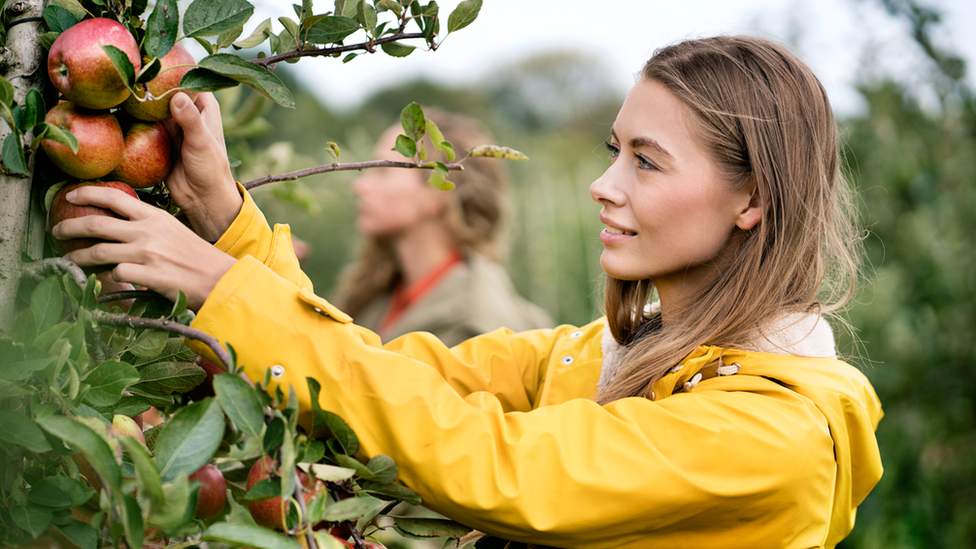
- Published13 February 2023
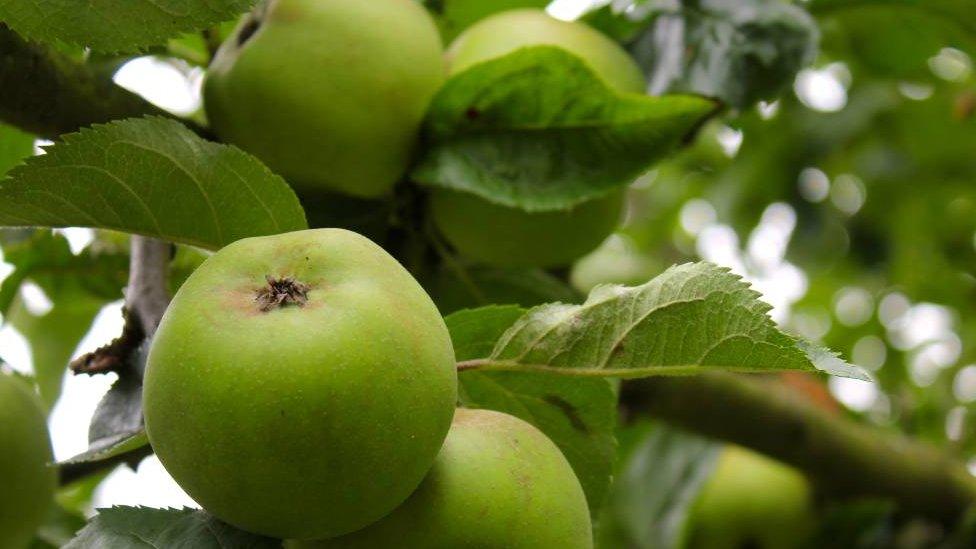
- Published11 October 2022
